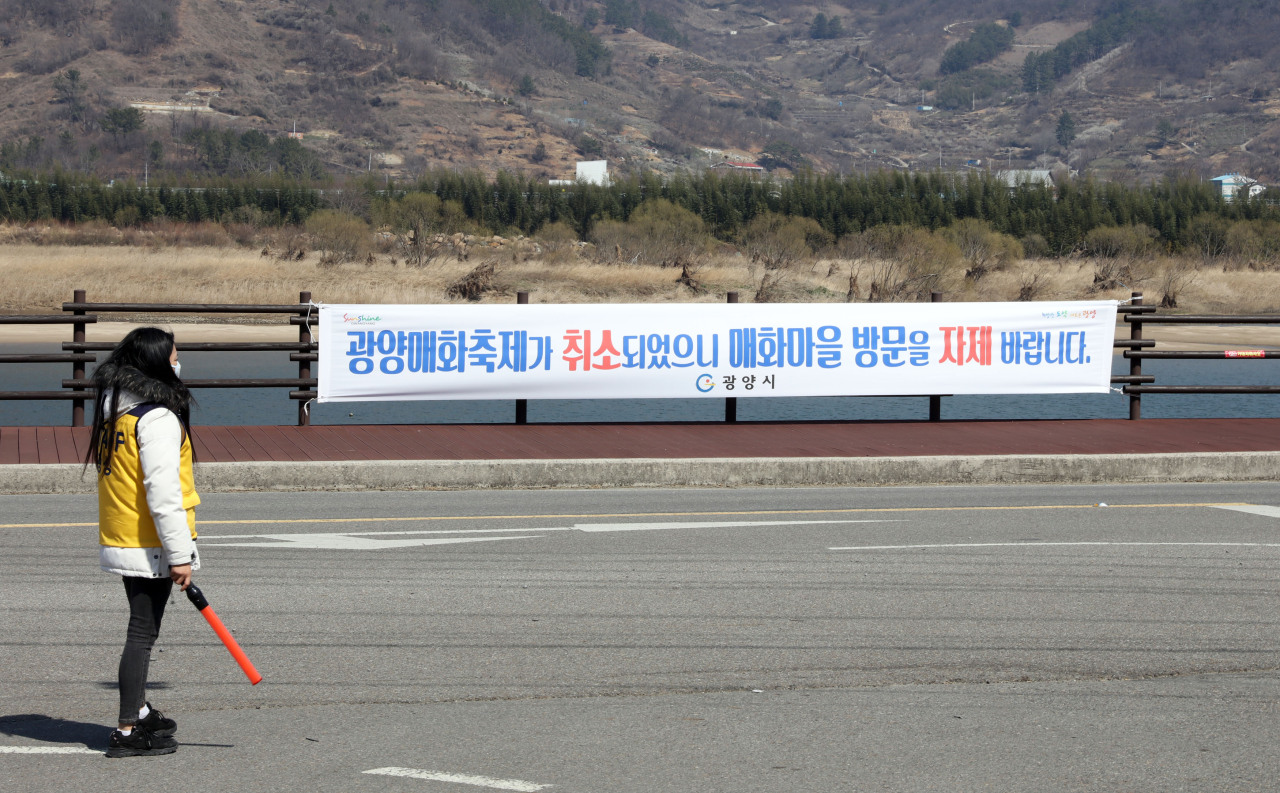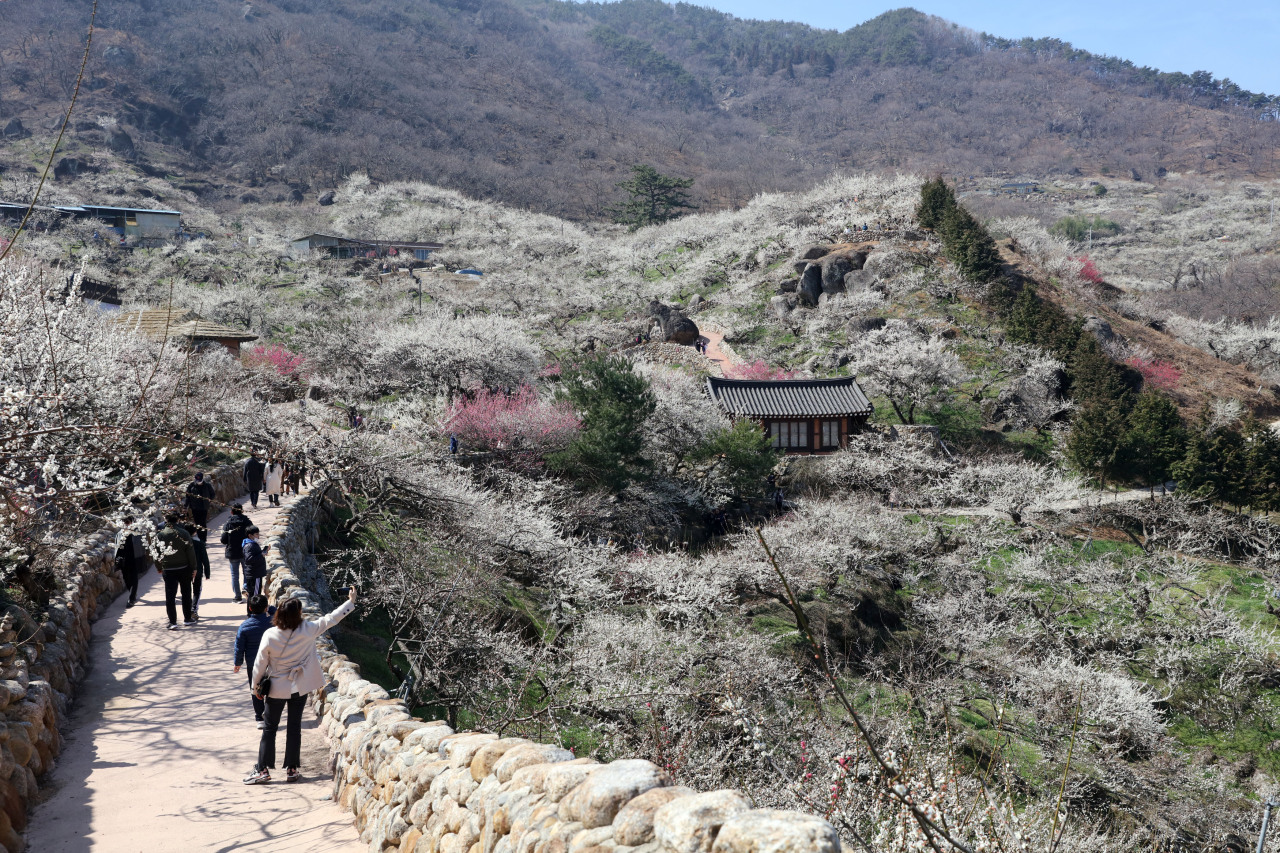With COVID-19 cases continuing to climb, spring festivals hosted in the southern regions of Korea have taken a major blow, affecting local economies heavily dependent on the festivals.
As Korea has implemented a “social distancing” policy to prevent community spread of the novel coronavirus, festivals and events that attract a large number of people have been canceled or postponed indefinitely, threatening the livelihoods of people who make a living on the festival circuit.
 |
With the cancellation of the Gwangyang Maehwa Festival, Gwangyang, South Jeolla Province, asks people to refrain from visiting the area to prevent the spread of COVID-19. (Yonhap) |
 |
With the cancellation of the Gwangyang Maehwa Festival, Gwangyang, South Jeolla Province, asks people to refrain from visiting the area to prevent the spread of COVID-19. (Yonhap) |
Southern regions in Korea, where spring arrives first, have already seen many cancellations. As many of those festivals are spring blossom festivals, very few can be rescheduled.
South Gyeongsang Province called off its signature event, the Jinhae Cherry Blossom Festival, which was originally scheduled from March 28-April 6. The annual spring festival attracted more than 4 million visitors last year. It is the first time the festival with a 57-year history has been canceled.
Most other cherry blossom festivals near the Busan area -- which has been hard hit by COVID-19 -- have been called off as well.
The Hwagae Market Cherry Blossom Festival has been canceled for the first time since the outbreak of the livestock foot-and-mouth disease in 2011. The Ulsan Gunggeorang Cherry Blossom Festival has been canceled too.
Meanwhile, festivals that can be held later in the year have been postponed. Goseong Dinosaur World Expo, slated for April, has been postponed to fall, along with the Ulju Mountain Film Festival and Ulsan Onggi Festival.
South Jeolla Province is facing a similar situation, canceling or delaying 14 spring festivals so far, including spring flower festivals in Suncheon, Haenam, Gwangyang and Gurye.
Gurye Sansuyu Festival, originally slated to run March 14-22, has been canceled. The spring festival, hosted at the Jirisan hot springs area, attracts 300,000 visitors a year and generates 15.5 billion won ($13 million) in revenue.
Gwangyang Maehwa Festival, which attracted 1.34 million visitors last year, generating 40 billion won in revenue, and Jindo Miracle Sea Road Festival, which gathered 530,000 visitors last year, have also been canceled.
Festivals held in South Chungcheong Province have proved no exception. Those revolving around springtime delicacies have been canceled, such as the Seocheon Camellia Octopus Festival as well as the Muchangpo Mystic Sea Road Jjukkumi and Dodari Festival.
The cancellations are expected to take a toll on local economies, particularly restaurants, accommodations and vendors whose businesses revolve around seasonal festivals. Local governments are working on measures to support small businesses hit by the cancellations.
By Im Eun-byel (
silverstar@heraldcorp.com)






![[Herald Interview] 'Trump will use tariffs as first line of defense for American manufacturing'](http://res.heraldm.com/phpwas/restmb_idxmake.php?idx=644&simg=/content/image/2024/11/26/20241126050017_0.jpg)

![[Health and care] Getting cancer young: Why cancer isn’t just an older person’s battle](http://res.heraldm.com/phpwas/restmb_idxmake.php?idx=644&simg=/content/image/2024/11/26/20241126050043_0.jpg)
